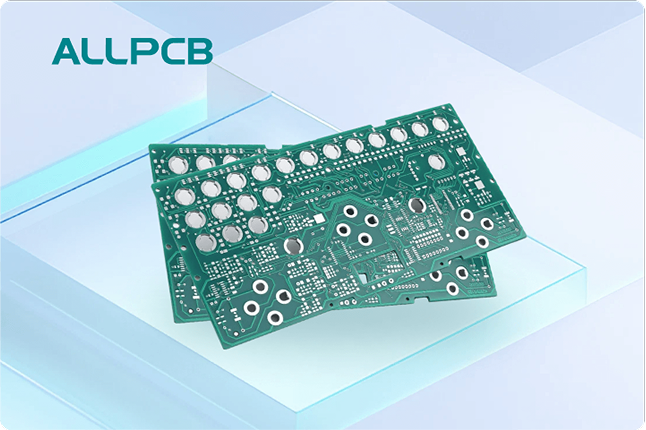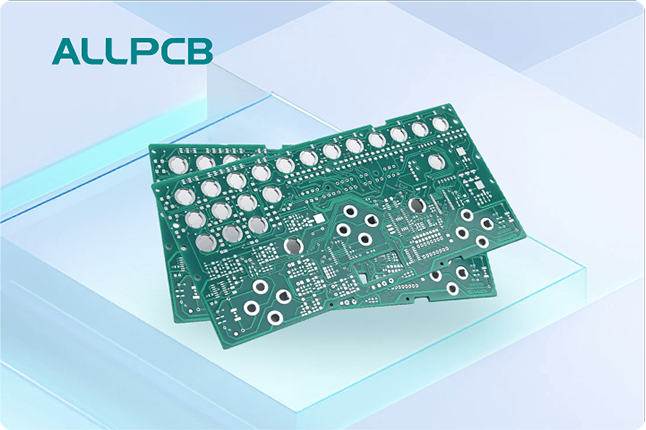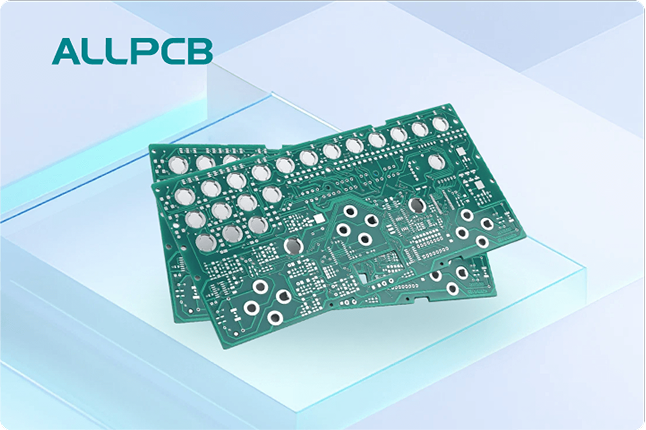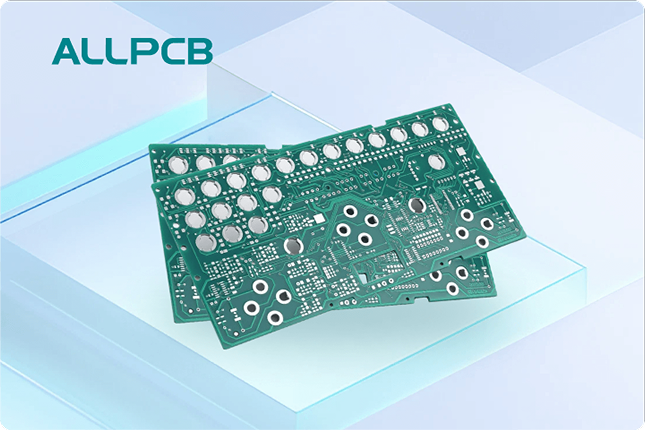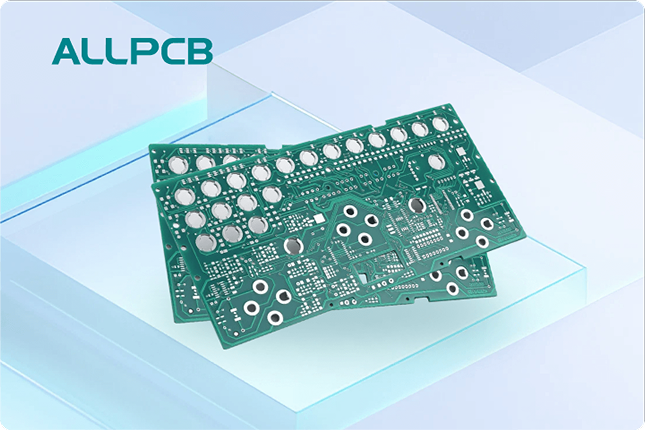In today’s world, where sustainability and ethics are at the forefront of manufacturing, transparency in the PCB (Printed Circuit Board) supply chain is more critical than ever. How can companies ensure ethical sourcing and accountability in PCB production? The answer lies in mapping the PCB supply chain for ethical sourcing and implementing robust traceability systems for sustainable electronic components. At ALLPCB, we believe that transparent PCB manufacturing processes, tracking the origin of materials in PCBs, and ensuring accountability in the PCB supply chain are essential steps toward a responsible future. In this blog, we’ll dive deep into how these practices work and why they matter to engineers, businesses, and the environment.
Why Transparency Matters in PCB Manufacturing
The electronics industry is a complex web of suppliers, manufacturers, and distributors. PCBs, as the backbone of electronic devices, rely on materials and processes that span across continents. However, this global network often hides issues like unethical labor practices, environmental harm, and the use of conflict minerals. Transparency in the supply chain addresses these concerns by providing visibility into every step of production, from raw material extraction to the final assembled board.
By focusing on mapping the PCB supply chain for ethical sourcing, companies can identify risks and ensure that their products are made responsibly. Traceability systems for sustainable electronic components allow manufacturers to track materials and processes, ensuring compliance with international standards. For engineers and businesses, this transparency builds trust with customers and aligns with growing demands for sustainability.

Mapping the PCB Supply Chain for Ethical Sourcing
Mapping the PCB supply chain is the foundation of ethical sourcing. This process involves creating a detailed overview of every stage in the production journey, including the origin of raw materials, the suppliers involved, and the manufacturing steps. By doing so, companies can pinpoint potential ethical issues, such as the use of conflict minerals like tin, tantalum, tungsten, and gold (often referred to as 3TG), which are frequently sourced from conflict zones.
A well-mapped supply chain helps in several ways:
- Identifying Suppliers: Knowing who supplies materials like copper, fiberglass, and epoxy resins ensures that only ethical partners are involved.
- Ensuring Compliance: Mapping allows companies to verify that suppliers adhere to regulations like the Dodd-Frank Act, which mandates reporting on conflict minerals.
- Reducing Risks: Understanding the supply chain helps mitigate risks like delays, quality issues, or reputational damage due to unethical practices.
For instance, a typical PCB supply chain might start with copper mining in South America, move to laminate production in Asia, and end with assembly in Europe or North America. Mapping each step ensures that no part of the process involves child labor or environmental degradation. At ALLPCB, we prioritize working with suppliers who share our commitment to ethical practices, ensuring that every layer of the supply chain aligns with global sustainability goals.
Traceability Systems for Sustainable Electronic Components
Traceability is the ability to track every component and material used in a PCB back to its source. Implementing traceability systems for sustainable electronic components is a game-changer for the industry. These systems use technologies like blockchain, RFID (Radio-Frequency Identification), and digital tracking platforms to record data at every stage of production.
Here’s how traceability works in practice:
- Material Tracking: Each raw material, such as copper foil or solder paste, is tagged with a unique identifier. This allows manufacturers to trace its origin and ensure it meets ethical and environmental standards.
- Process Documentation: Every manufacturing step, from etching to soldering, is logged. This ensures that processes meet quality and safety benchmarks.
- End-to-End Visibility: Engineers and customers can access data about the PCB’s journey, building trust and accountability.
Traceability also supports sustainability by reducing waste. For example, if a batch of materials is found to be defective, traceability systems can quickly identify and isolate the affected products, minimizing resource loss. According to industry studies, companies with strong traceability systems can reduce supply chain errors by up to 30%, saving costs and protecting the environment.

Transparent PCB Manufacturing Processes
Transparency in PCB manufacturing processes goes beyond just sourcing materials. It involves opening up the production methods to scrutiny, ensuring that every step—from design to delivery—follows ethical and sustainable practices. Transparent PCB manufacturing processes help engineers and businesses understand how their boards are made, fostering trust and collaboration.
Key aspects of transparent manufacturing include:
- Clear Communication: Providing detailed reports on production stages, such as impedance control during multilayer board fabrication. For example, maintaining an impedance value of 50 ohms ±10% for high-speed signal integrity is critical in modern designs, and transparency ensures this is achieved consistently.
- Environmental Impact: Sharing data on energy usage and waste management during manufacturing. A typical PCB factory might consume 500 kWh of electricity per 1,000 square meters of board produced, and transparent processes aim to lower this footprint through renewable energy or recycling programs.
- Worker Safety: Ensuring that workers are protected from hazardous chemicals like lead or bromine, often used in older PCB materials, by adopting safer alternatives and publicly reporting safety measures.
At ALLPCB, we strive to maintain transparency by offering detailed insights into our manufacturing workflows. This allows our clients to make informed decisions and ensures that every board meets both technical and ethical standards.
Tracking the Origin of Materials in PCBs
Tracking the origin of materials in PCBs is a crucial part of ethical sourcing. Many materials used in PCBs, such as rare earth metals and precious metals, come from regions with complex social and environmental challenges. Without proper tracking, there’s a risk of supporting harmful practices unknowingly.
To address this, companies can adopt the following strategies:
- Supplier Audits: Regularly auditing suppliers to confirm the origin of materials. For example, ensuring that gold used in PCB connectors isn’t sourced from conflict zones.
- Certification Programs: Partnering with organizations that certify materials as conflict-free or sustainably sourced, aligning with initiatives like the Responsible Minerals Initiative (RMI).
- Digital Tools: Using software to log and verify material origins. These tools can track a batch of copper from a mine in Chile to a PCB factory, ensuring full accountability.
Tracking material origins also helps in meeting customer expectations. A growing number of consumers and businesses prefer products with verified ethical sourcing. By focusing on tracking the origin of materials in PCBs, manufacturers can differentiate themselves in a competitive market while contributing to global sustainability goals.

Ensuring Accountability in the PCB Supply Chain
Accountability is the final piece of the puzzle in creating an ethical PCB supply chain. Ensuring accountability in the PCB supply chain means holding every stakeholder—suppliers, manufacturers, and even customers—responsible for their role in the process. This creates a culture of trust and responsibility that benefits the entire industry.
Here are some ways to ensure accountability:
- Public Reporting: Sharing annual sustainability reports that detail supply chain practices, environmental impact, and ethical sourcing efforts. For instance, reporting a 20% reduction in carbon emissions due to optimized logistics can demonstrate accountability.
- Third-Party Audits: Inviting independent organizations to review supply chain practices and verify compliance with ethical standards.
- Customer Feedback: Incorporating feedback mechanisms where clients can report concerns or suggest improvements in the supply chain process.
Accountability also extends to technical performance. For high-speed PCBs, ensuring signal speeds of up to 10 Gbps with minimal loss requires precise manufacturing and material selection. Transparent reporting on how these standards are met—through material testing or process validation—builds confidence among engineers that the product will perform as expected.
Challenges in Achieving Supply Chain Transparency
While the benefits of transparency are clear, achieving it is not without challenges. The PCB supply chain is often fragmented, with multiple layers of suppliers and subcontractors. Gathering accurate data from every participant can be time-consuming and costly. Additionally, some regions lack the infrastructure for detailed tracking, making traceability difficult.
Despite these hurdles, advancements in technology are making transparency more achievable. Blockchain, for example, offers a tamper-proof way to record supply chain data, ensuring that information about material origins or manufacturing processes cannot be altered. By investing in such innovations, companies can overcome barriers and build a more ethical supply chain.
The Future of Ethical PCBs with ALLPCB
The demand for ethical and sustainable electronics is only growing. As regulations tighten and consumer awareness increases, mapping the PCB supply chain for ethical sourcing and implementing traceability systems for sustainable electronic components will become industry standards. Transparent PCB manufacturing processes, tracking the origin of materials in PCBs, and ensuring accountability in the PCB supply chain are no longer optional—they are essential for success.
At ALLPCB, we are committed to leading the way in this transformation. By prioritizing transparency and traceability, we aim to deliver PCBs that not only meet the highest technical standards but also align with global ethical and environmental goals. Whether you’re an engineer designing cutting-edge devices or a business seeking reliable partners, we’re here to support you with solutions that make a difference.
Conclusion
Transparency in the PCB supply chain is a powerful tool for building trust, ensuring sustainability, and meeting the needs of modern electronics. By mapping the PCB supply chain for ethical sourcing, adopting traceability systems for sustainable electronic components, and focusing on transparent PCB manufacturing processes, companies can create products that are both high-performing and responsible. Tracking the origin of materials in PCBs and ensuring accountability in the PCB supply chain further strengthen this commitment. As we move toward a more sustainable future, these practices will define the industry, and ALLPCB is proud to be at the forefront of this change.
 ALLPCB
ALLPCB


